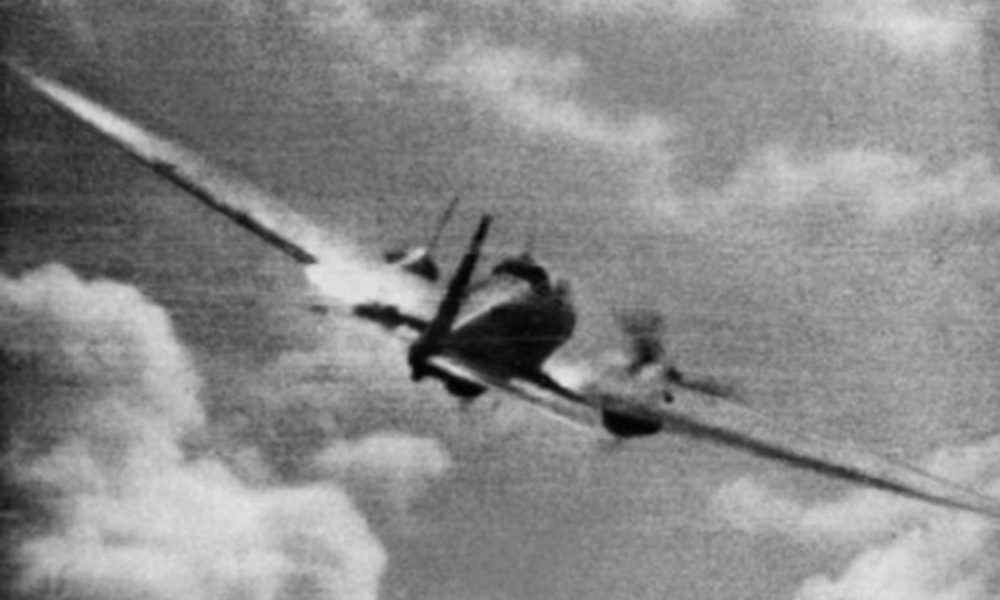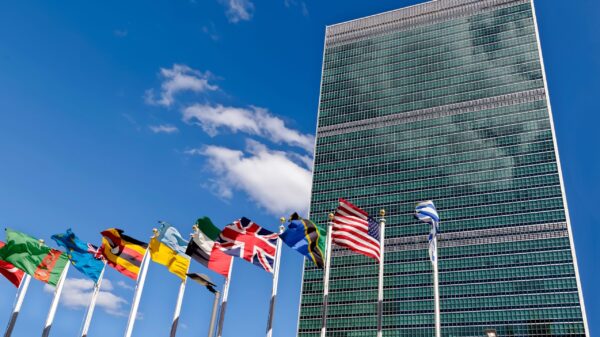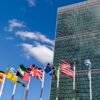Eighty years ago this week, hurricane season ended when the Royal Air Force won the Battle of Britain by stopping the Nazi war machine at the edge of the English Channel. Before the summer of 1940, Hitler had derided Great Britain as a nation of shopkeepers. Göring’s seemingly superior Luftwaffe pilots were outdone by the young British RAF, aided by friendly forces—not the least of which was a squadron of Polish pilots. They had shown the world that the Nazi juggernaut could be countered through perseverance, aided by the novel design of quick and lethal airplanes: the spitfire and hurricane.
Churchill named this battle when he declared after Dunkirk that with the conclusion of the Battle of France, the Battle of Britain would begin. Unlike past battles, the critical objective was as amorphous as it was strategic: the achievement of air superiority. It was a testament to the fact that warfare had changed forever, tilting the scales in favor of technology over brute strength.
Even Hitler and his retinue of yes-men knew that subjugating Britain would require a risky and complex invasion. The English Channel, though relatively narrow at some points, served as a giant moat that required amphibious landings on slow-moving vessels, which would be vulnerable to attack from above. Nazi control of the air would be the key to a successful invasion. With proper preparations for a seaborne invasion many months out, Göring pushed for an air campaign, and Hitler approved.
The Luftwaffe’s first objective was to destroy RAF airfields, but Luftwaffe planes were not designed for this mission, and their pilots—though experienced—were no match for the RAF’s pilots in spitfires and hurricanes. These planes had unmatched maneuverability, and home-field advantage played an equally important role. The British had a superior early warning radar system that enabled them to plot the likely flight path of incoming enemies and to scramble their gassed and fully loaded planes efficiently. Over Britain, each downed German represented not only a lost airplane but also a lost pilot. Maintaining air superiority was a fight for survival, and the British pilots knew that the fate of freedom for their island, and perhaps for civilization, rested on their shoulders. They turned the tide of the war in fighting, as Churchill noted, “undaunted by the odds, unwearied in their constant challenge and mortal danger.”
While the concept of air superiority was initially academic, the Battle of Britain proved it critical to modern military success. Since then, the need for air superiority has remained unquestioned. A country might not win with air superiority, but failure was guaranteed without it. The use of airpower to master the skies has been the first order of business in every major conflict since World War II. Even today, with the development of defensive missile shields and the capability of intercepting incoming aircraft and missiles, air superiority is and will remain a critical objective in any conflict. But air superiority is starting to give way to space superiority.
As we become more and more dependent on satellites, and as human activity in space becomes less of a novelty, controlling space will be critical not only for commercial and economic success, but also for global stability and the defense of our nation. The nation that controls space will control the destiny of the entire world. To be dominant in space is to be dominant period, and the dominating nation will have the final say over many aspects of our lives.
Those who would object to the militarization of space do not understand, or refuse to see, today’s reality. The activities of the Chinese Communist Party (CCP) in space are similar to those of the nations who sought to control the sea in the 19th century and the air in the 20th century. At present, these activities are largely unchecked by other nations and international organizations.
There was a time when the United Nations was capable of limiting space to peaceful means. Similar to the control of nuclear weapons, the United Nations provided a means of achieving an international consensus that limiting weapons in space was beneficial for all nations. But, as with any large organization attempting to achieve consensus among diverse groups, the only real agreement among nations became the lowest common denominator. Thus, UN limits on the militarization of space are limited, weak, and ineffective.
This void of international leadership is being filled by a resurgent Communist China, intent on achieving world domination—a long-term national goal. With few international limitations, the CCP is seeking space superiority to impose its ideas on the world and thereby supplant civilization’s shared liberal principles. The UN has been aggressively helpless or simply unable to check China’s dreams of space superiority. While the CCP has yet to obtain the domination it seeks, it is clearly on track with covert military missions, like developing its own GPS system that would aid in obtaining space superiority.
The United States cannot let this happen. Students of history know that many of the great and terrible military conflicts could have been prevented or mitigated with proper foresight and preparation. Unless the United States acts soon to check CCP aggression in space, we may have extremely limited choices in the future.
Our new Space Force must explain the seriousness of this threat and develop strategic plans to protect space from the domination of any one country. This grand effort will require allies who not only understand the threat, but who are financially able to join with the United States to dominate space for peaceful purposes. The free world’s shared cultural and civic traditions could form the basis for ensuring that space can never be dominated by one country.
During World War I and in the following decades, Churchill stressed the importance of developing radar, the tank, and the airplane. Without these developments, the Battle of Britain would have ended much differently. As we celebrate the 80th anniversary of victory at the Battle of Britain, and as we understand the strategic necessity of air superiority in protecting the island nation from foreign invasion, we should recognize the strategic necessity of space superiority today.
The United States and her friends cannot allow a country that is utterly opposed to freedom to control space and, in turn, Earth. The free world must develop space first and create enforceable laws to allow space to be an extension of the liberty we currently enjoy. In order to do that, we must overhaul our outdated legal regime concerning the development and deployment of space technologies, support the private development of space properly, and remove the bureaucratic barriers hindering important breakthroughs. We must not surrender space to totalitarians who would use it to subjugate free peoples around the globe. If we heed the call to action and engage in this new endeavor, we can ensure that the limitless possibilities of space are secured for future generations.





















































